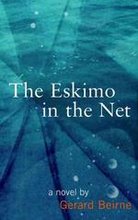How Do I know What I Think Until I See What I Have Said
"Dead Beat", Hugo chided, "you must tell them more. You're letting those folks off the hook."
"So Dick what do you have in mind?"
"Simple really: I often make these remarks to a beginning poetry writing class. You'll never be a poet until you realize that everything I say today and this quarter is wrong. It may be right for me, but it is wrong for you. Every moment, I am, without wanting or trying to, telling you to write like me. But I hope you learn to write like you. In a sense, I hope I don't teach you how to write but how to teach yourself how to write. At all times keep your crap detector on. If I say something that helps, good. If what I say is of no help, let it go. Don't start arguments. They are futile and take us away from our purpose. As Yeats noted, your important arguments are with yourself. If you don't agree with me, don't listen. Think about something else.
When you start to write, you carry to the page one of two attitudes, though you may not be aware of it. One is that all music must conform to truth. The other, that all truth must conform to music. If you believe the first, you are making your job very difficult, and you are not only limiting the writing of poems to something done only by the very witty and clever, such as Auden, you are weakening the justification for creative writing programs. So you can take that attitude if you want, but you are jeopardizing my livelihood as well as your chances of writing a good poem. If the second attitude is right, then I still have a job. Let's pretend it is right because I need the money. Besides, if you feel truth must conform to music, those of us who find life bewildering and who don't know what things mean, but love the sounds of words enough to fight through draft after draft of a poem, can go on writing--try to stop us.
One mark of a beginner is his impulse to push language around to make it accommodate what he has already conceived to be the truth, or, in some cases, what he has already conceived to be the form. Even Auden, clever enough at times to make music conform to truth,was fond of quoting the woman in the Forster novel who said something like, "How do I know what I think until I see what I've said."
A poem can be said to have two subjects, the initiating or triggering subject, which starts the poem or "causes" the poem to be written, and the real or generated subject, which the poem comes to say or mean, and which is generated or discovered in the poem during the writing. That's not quite right because it suggests that the poet recognizes the real subject. The poet may not be aware of what the real subject is but only have some instinctive feeling that the poem is done."
"You're getting at me, Dick, aren't you?" Dead Beat asks. "I do go on about discovering the poem or story through the writing."
"You do, Dead Beat, and in a way you are right, but really does the writer recognise this?"










No comments:
Post a Comment